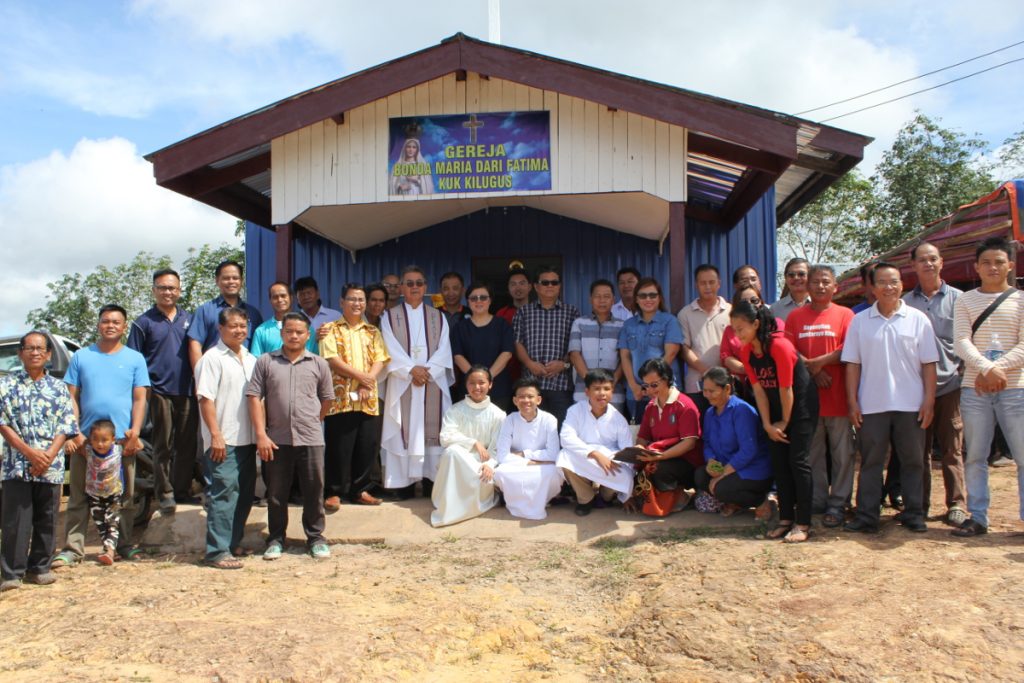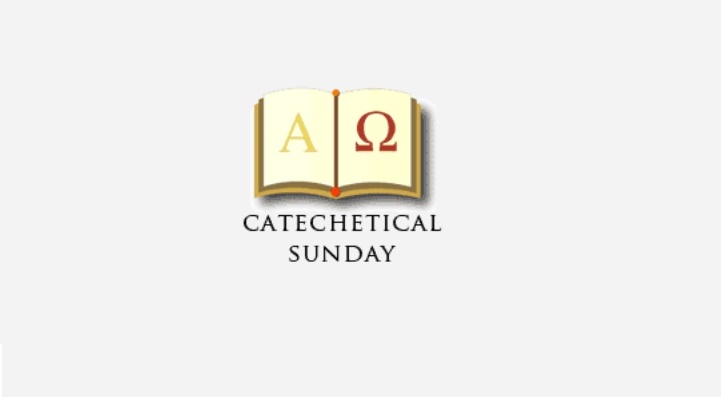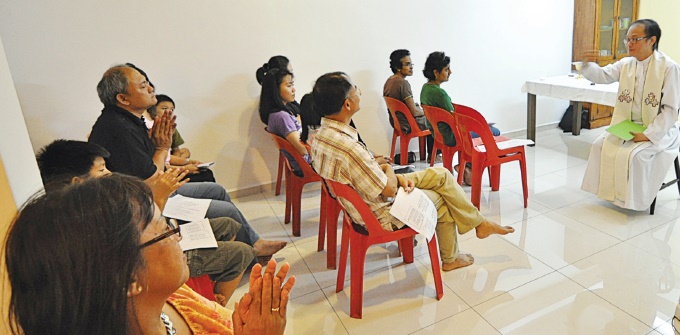The BEC makes known the Word of God. It creates a greater acceptance of the Word of God.
— In the small communities, there is growth in the experience of new interpersonal relationships in the faith and a deepening in knowledge of the Word of God.
— They celebrate the Word of God in daily life.
— They seek to be nourished by the Word of God.
— They provoke an evaluation of the lifestyle and a reflection on reality in the light of the Gospel.
— In the BEC, family catechism and education in the faith of adults take on a more adequate form, responding to the needs of the simple people.
— They express, appreciate and purify the popular religiosity.
— The ecclesial community is becoming responsible for the catechism at all levels’.
— The emphasis of the BEC is on… faith that is shared more spontaneously in small communities.
The person of the Lord Jesus, crucified and resurrected, occupies the centre of the life of the BEC. The Christology that is being lived among us comes from a new grasp and understanding of the life and mission of Jesus in the light of the social and cultural context of the BEC. .. the meaning and the immediate consequences of the following of Christ and the contradiction of the Cross is better situated and explored.
The life of Jesus is seen as an eloquent experience of fidelity to the Father and of commitment to humanity in a concrete, historical context. Jesus is the friend who invites us to follow him in a new experience of a new communion and community in a more prophetic lifestyle: committed to the service of others.
The education in the faith of the members of the BEC is from this Christological perspective, seeking to awaken strong interior motivation, (convictions, decisions) and not only exterior motivations (circumstantial). So that, even when problems and difficulties arise, the persons do not lose the sense and direction of their action and persevere until the end.
The BEC, therefore, is the means by which the faithful deepen and are educated in their faith so that it becomes evermore the inspiration of their life and attitudes. This education of the faith, can be and is, done in study groups or in bible groups. It is important to always bear in mind the two risks that can be present; on the one hand, the scriptures and doctrine remain merely objects to be taught and learned and not the source of life; on the other, being so immersed in activity that the basic doctrinal references are lost from sight.
There is always the need for theory in order to view reality. There is nothing more practical than a good theory. In order to integrate doctrine and life, the BEC ought to conduct special sessions for the depth of the faith, where the life of the Community is constantly seen as a permanent education in the faith.
At the same time, there should also be sessions where the reality is analysed and interpreted, where there is reflection with regard to commitment. From time to time, it is also necessary to provide for a systematic study of the different aspects that represent the globality of Christian life so that the members can have a good frame of reference for life and mission.
The study of the Gospel ought to be intensified in an existential way so that it is translated into vital modes of action and behaviour. One has to be faithful to the nature of the Word of God (word and action).
The Word of God possesses a truth that must be deeply learned. It is the encounter with God as a person, a living encounter where the listener feels that he has been touched and questioned by another living person — God.
Therefore, more than teaching a truth, it is to bring alive an encounter with God and each one of the members of the BEC. It is evident that this type of encounter will be easier if the animator himself has the personal experience of what he is saying. He has to be more of a witness than a teacher.
Growing in the faith is not the same as taking a course. It is more the sharing of experiences in order to grow together in the faith. This experience is nourished by the Word of God, which purifies, corrects it and helps it to progress.
The Word of God is Good News. Understanding it, the person discerns new reasons for living and for hoping, for being happy and for improving in life. The Word of God is not merely a series of demands, of moral rules and laws. If it were just this, then it would be an unbearable joke. It is much more the Good News that frees the person from all that oppresses and mutilates.
It ought to renew the person, giving him the assurance and security that he/she can overcome and be fulfilled in and through Jesus.
Source: Basic Ecclesial Community: Church from the Roots By Jose Marians and Team, (National Biblical Catechetical and Liturgical Centre, Bangalore, India)
Article reproduced from Herald Malaysia online



















